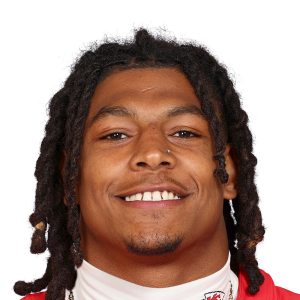

Jeff Mueller DPT framed Isaiah Pacheco as this season’s Tony Pollard—a back poised to reclaim lost burst in the second year after fibula fracture and tight-rope fixation. Players in Year 1 off that surgery usually suffer a 20–30 percent dip in acceleration, deceleration, and cutting ability, which matched Pacheco’s ugly post-return efficiency behind a leaky Chiefs line. In Year 2 those movement patterns typically normalize, so Mueller is "not fading Pacheco at all" from an injury standpoint. Usage remains the wild card: Kansas City re-signed Kareem Hunt, added Elijah Mitchell, and drafted Bershard Smith, hinting at a committee, yet Mueller expects Pacheco to handle the early-down load while Rashee Rice serves a probable suspension. At an RB26 price tag, he is drafting Pacheco while simply assuming the runner’s violent, upright style will cost him a game or two along the way.


Jeff Mueller DPT said Nick Chubb is the Texans back he actually wants at cost. Chubb is now a full year removed from his double knee procedure—initial meniscus/MCL repair followed by ACL reconstruction—and six months removed from the foot fracture that ended 2024. Foot fractures typically need 8–12 weeks of bone healing plus conditioning, so Chubb has already cleared the six-month window when efficiency usually normalizes. That places him in the classic "Year-2 ACL" bucket that historically restores 90–95 percent of pre-injury explosiveness. Because Chubb’s ADP is still drifting in the late rounds behind Dameon Pierce and Woody Marks, Mueller is happy to scoop him as cheap insurance against Mixon’s murky ankle status and believes Chubb is the better bet to lead Houston in carries despite the Texans’ lingering offensive-line concerns.


Jeff Mueller DPT urged drafters to treat Joe Mixon as a high-variance bet until Houston releases real medical details. Mixon was photographed in a walking boot for only "a couple weeks" during OTAs, a span too short for the six-week non-weight-bearing timeline that normally follows tight-rope ankle surgery—so Mueller doubts that procedure occurred. What worries him more is Mixon’s chronic ankle history: a Lisfranc sprain that shut him down in 2020, a right high-ankle sprain in Week 2 last year, and a left ankle sprain in Week 14. With three significant lower-leg injuries on both sides in four seasons, Mueller believes re-injury risk is “absolutely baked in” and recommends drafting Mixon only at a noticeable discount in best-ball or treating him as a volatile RB3/FLEX in season-long leagues until training-camp reports clarify the situation.


Jeff Mueller said he is still willing to draft Kenneth Walker despite previously labeling him injury-prone, because Clint Kubiak’s arrival should juice both Walker’s rushing and receiving output. Mueller noted that Kubiak backs historically score well, and Seattle’s thin vertical receiving corps plus Sam Darnold’s check-down tendencies could funnel short targets Walker’s way ahead of Zach Charbonnet. He emphasized how valuable those targets are after seven straight years of league-wide decline in running-back receiving volume. Rich Hribar added that Walker averages 4.7 yards per carry on outside-zone runs, almost a full yard better than the 3.8 he posts on other concepts, perfectly matching Kubiak’s Shanahan-style system. The downside remains Walker’s string of lower-extremity soft-tissue injuries and a still-iffy offensive line that may expose him to more contact, but Mueller believes the ceiling justifies taking him in the current RB2 range for both best-ball and season-long formats.



